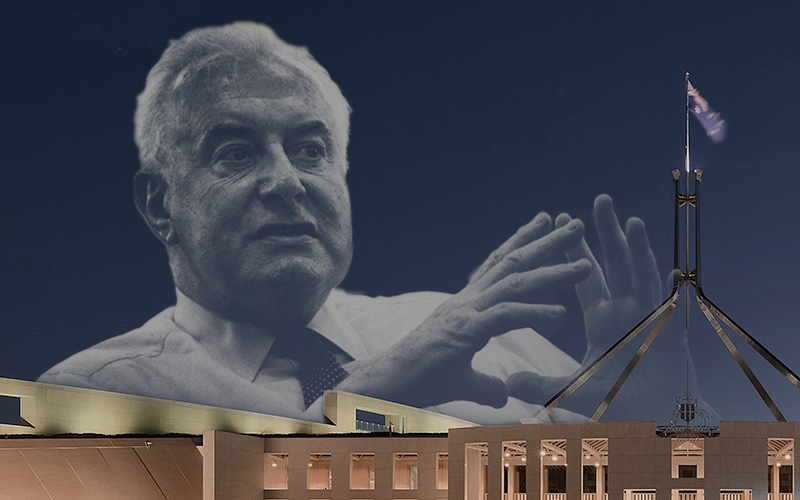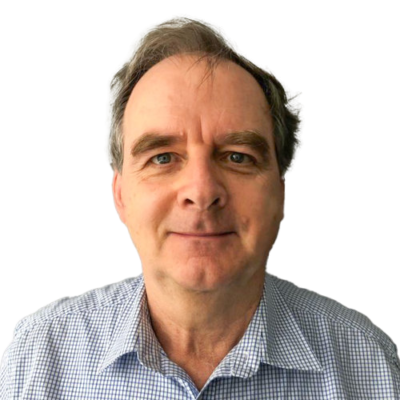Gough Whitlam made his election policy launch 50 years ago, but it reads today as an address to the Australians of 2022. Mark Sawyer looks at the enduring changes and the enduring challenges wrought by the reforming Labor leader.
Sunday marks the 50th anniversary of a historic day in Australian life. Gough Whitlam delivered Labor’s policy speech for the 1972 federal election at the Blacktown Civic Centre in Sydney’s west on November 13, 1972.
The speech is rightly remembered as one of the greatest in the nation’s history.
”Men and women of Australia!” it began, the same ringing declaration harnessed by wartime Labor prime minister John Curtin in 1943.
“The decision we will make for our country on 2 December is a choice between the past and the future, between the habits and fears of the past, and the demands and opportunities of the future. There are moments in history when the whole fate and future of nations can be decided by a single decision. For Australia, this is such a time.”
But beyond Whitlam’s grand rhetoric lay a sweep of detail in dozens of fields.
Some of the policies he announced are in the nation’s bloodstream as if they have always been there: freedom of information laws; votes for 18-year-olds (it was 21 in 1972); the abolition of the death penalty for federal crimes; the abolition of conscription (compulsory military service), independence for Papua New Guinea.
Some policies were announced and await full fruition:
“A woman’s choice between making motherhood her sole career and following another career in conjunction with motherhood depends upon the availability of proper child care facilities. The Pre-School Commission will be responsible for developing these facilities in conjunction with pre-school centres, beginning in areas where the need is most acute.”
Some policies were enacted by a successor Labor government (the abolition of appeals to the British parliament). One was reversed by a successor Labor government:
“We will abolish fees at universities and colleges of advanced education [and technical colleges]. We believe that a student’s merit rather than a parent’s wealth should decide who should benefit from the community’s vast financial commitment to tertiary education. And more, it’s time to strike a blow for the ideal that education should be free.”
There was the dawning of the age of universal health cover, now called Medicare.
“A federal Labor government will introduce a universal health insurance scheme. It will be administered by a single Health Fund. Contributions will be paid according to taxable income.”
There were also far-reaching pledges for social welfare. One sounds a lot like the National Disability Insurance Scheme:
“We will establish a National Compensation Scheme to reduce the hardships imposed by one of the great factors for inequality in society – inequality of luck.”
One pledge, eventually instituted by Paul Keating, emerges as an aside rather than a ringing declaration.
“… we will establish national superannuation.”
One policy arguably secured Australia’s economic future:
“A Labor government will transfer Australia’s China Embassy from Taipei to Peking.”
In other words, this was a speech that changed the nation.
Australians without basic rights
The speech promises a new deal for Aborigines, to use the preferred term from 1972. Whitlam said:
“There is one great group of Australians who have been denied their basic rights to the pursuit of happiness, to liberty and indeed to life itself for 180 years – since the very time when Europeans in the New World first proclaimed those rights as inalienable for all mankind.”
There were specifics of course. But there were three sentences that seem to throw forward 50 years to the referendum on an Indigenous Voice to Parliament:
“We will establish once and for all Aborigines’ rights to land and insist that, whatever the law of George III says, a tribe and a race with an identity of centuries – of millennia – is as much entitled to own land as even a proprietary company.
There will be a separate Ministry for Aboriginal Affairs; it will have offices in each State to give the Commonwealth a genuine presence in the states.”
When things got complicated
Whitlam’s ambitious plans involved a dramatic increase in government spending, but he blithely dismissed any notion that it could not be paid for:
“It is because of the automatic and inevitable massive growth in Commonwealth revenues that a whole range of Labor proposals denounced and derided by the Liberals for years and years have suddenly become possible and desirable on this election eve.”
History records that the postwar boom in Western economies was ending. The Arab-Israeli war caused petroleum prices to quadruple, and recession hit Australia as it did so many nations. Unemployment rose rapidly, and in Australia, has only this year returned to where it was in 1974.
That blind faith in endless growth sowed the seeds of his government’s defeat after three tumultuous years. Whitlam was brought undone by the economic storms that beset his government.
The creative constitutionalist
There is another aspect of the Whitlam legacy, not so celebrated today but deeply entrenched today: his creative embrace of internationalism. Fifty years ago it was not uncommon for Australia to pick and choose what international conventions it embraced.
But upon election the Whitlam government signed UN conventions on civil, political, economic, social and cultural rights that had been ignored by Australia for six years. It switched vote in the United Nations to condemn colonialism in the remaining European colonies and minority rule in South Africa and Zimbabwe.
There were convenient domestic reasons for the embrace of international treaties. Fifty years ago progressives were frustrated by courts overruling politicians. Whitlam was plagued by court challenges to his agenda.
After winning the 1974 election, he staged the only joint sitting of parliament in the 120 years of nationhood. This was to allow both Houses to pass six bills that had been rejected in the previous parliament. It was an audacious move that only a reforming prime minister could have dreamed of trying.
The joint sitting was called to pass the bills that created today’s Medicare, granted Senate representation to the ACT and Northern Territory, and made elections fairer. But one bill relating to energy policy, the Petroleum and Minerals Authority Bill, was challenged in the High Court by four states and struck down.
He found another way to enact his agenda.
Whitlam saw a way forward for Labor that involved signing up to international treaties. Doing so would give the Commonwealth obligations to comply. In doing so, the Commonwealth would sidestep opposition from the states. This gave the Commonwealth government a role in the protection of such vital natural sites as the Great Barrier Reef.
It also earned him the undying enmity from conservative premiers such as Robert Askin (NSW), Charles Court (WA) and Joh Bjelke-Petersen (Queensland).
Things have changed in that respect. Now progressives are as likely to use the courts to stymie conservatives as vice versa.
The same prime minister who came up with the most creative engagement with the constitution was ultimately undone in its name, on November 11, 1975. But that’s another story.
The challenge remains
There is an Australia before Whitlam and an Australia after Whitlam. But 50 years after his triumphant campaign and eight years after his death, the challenge Whitlam laid down remains:
“All of us as Australians have to insist that we can do so much better as a nation. We ought to be angry, with a deep determined anger, that a country as rich and skilled as ours should be producing so much inequality, so much poverty, so much that is shoddy and sub-standard.
“We ought to be angry – with an unrelenting anger – that our aborigines have the world’s highest infant mortality rate. We ought to be angry at the way our so-called leaders have kept us in the dark – Parliament itself as much as the people – to hide their own incapacity and ignorance.”
Dreaming of a free and fair media: when a rolling debate gathered a Moss
Mark Sawyer is a journalist with extensive experience in print and digital media in Sydney, Melbourne and rural Australia.

